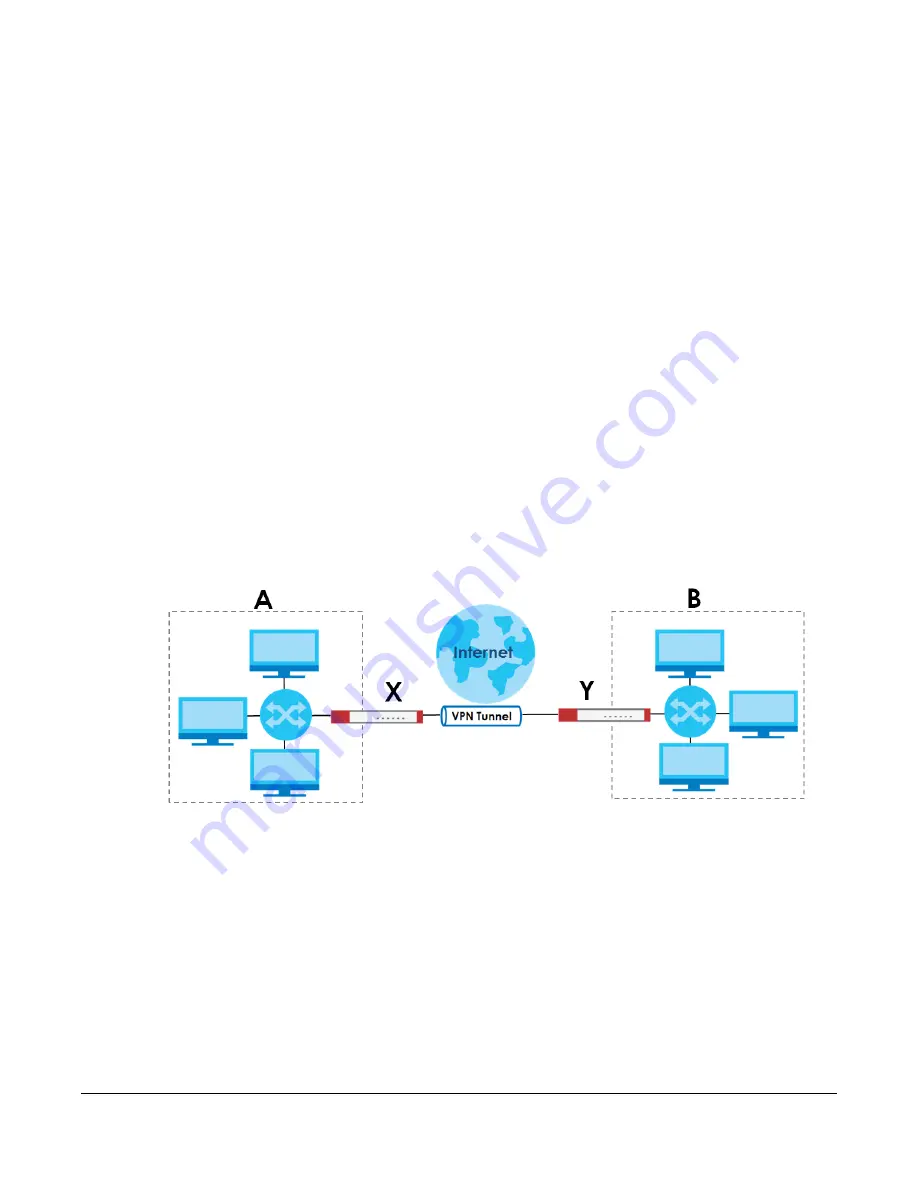
ZyWALL ATP Series User’s Guide
379
C
HAPTER
20
IPSec VPN
20.1 Virtual Private Networks (VPN) Overview
A virtual private network (VPN) provides secure communications between sites without the expense of
leased site-to-site lines. A secure VPN is a combination of tunneling, encryption, authentication, access
control and auditing. It is used to transport traffic over the Internet or any insecure network that uses
TCP/IP for communication.
IPSec VPN
Internet Protocol Security (IPSec) VPN connects IPSec routers or remote users using IPSec client software.
This standards-based VPN offers flexible solutions for secure data communications across a public
network. IPSec is built around a number of standardized cryptographic techniques to provide
confidentiality, data integrity and authentication at the IP layer. The Zyxel Device can also combine
multiple IPSec VPN connections into one secure network. Here local Zyxel Device
X
uses an IPSec VPN
tunnel to remote (peer) Zyxel Device
Y
to connect the local (
A
) and remote (
B
) networks.
Figure 266
IPSec VPN Example
Internet Key Exchange (IKE): IKEv1 and IKEv2
The Zyxel Device supports IKEv1 and IKEv2 for IPv4 and IPv6 traffic. IKE (Internet Key Exchange) is a
protocol used in setting up security associations that allows two parties to send data securely.
IKE uses certificates or pre-shared keys for authentication and a Diffie–Hellman key exchange to set up
a shared session secret from which encryption keys are derived. A security policy for each peer must be
manually created.
IPSec VPN consists of two phases: Phase 1 and Phase 2. Phase 1's purpose is to establish a secure
authenticated communication channel by using the Diffie–Hellman key exchange algorithm to
generate a shared secret key to encrypt IKE communications. This negotiation results in one single bi-
directional ISAKMP Security Association (SA). The authentication can be performed using either pre-
















































